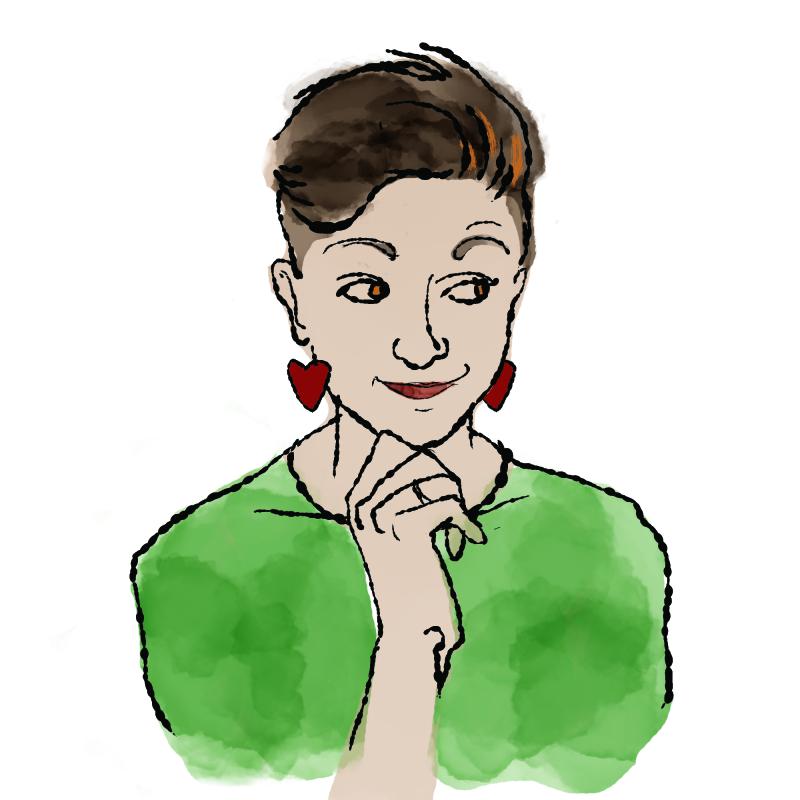While I don’t think labeling one’s sexuality is always necessary, I’ve always considered myself a heterosexual woman. I’ve been attracted to members of the opposite sex for as long as I can remember. During puberty, I plastered my bedroom walls with magazine cutouts depicting boy band members and only developed crushes on my male classmates. However, nearly all of my recent erotic dreams are of me performing a variety of sexual acts on females. I always wake feeling aroused.
I’ve heard that dreams are manifestations of things we see throughout the day. Could this be a result of living in a society where the female body is hyper-sexualized? Is this bi-curiosity? I’ve considered the possibility of being bisexual with an open mind. However, I don’t feel capable of having feelings of romantic love for another woman.
I’m currently in a loving and committed relationship with a man and I don’t feel as though anything is missing, sexually or otherwise. Because of these dreams however, I sometimes can’t help but wonder: is there a part of my sexuality that I’m not exploring?
Traditional stage theories of identity development dictate a linear story of same-sex sexuality identity: girl meets boy and falls in love; girl goes to liberal arts college; girl starts watching the L-word; girl makes out with her “lesbian friend”; girl breaks up with her boyfriend; girl gets short haircut; girl is now a lesbian; the end. This implies that once someone achieves a full awareness of her sexual desire, stability occurs.
In convincing contrast to this, psychologist Lisa M. Diamond found in her 10-year study of female same-sex sexuality development that young women’s sexuality is particularly fluid. Specifically, her research revealed female same-sex desire to be more malleable than male same-sex desire, featuring drastic, often late-blooming, and seemingly abrupt changes in female sexual desire and attraction.
According to Diamond, women are more likely to report bisexual attractions than to report exclusive same-sex attractions, whereas the opposite pattern is found in men. While many gay- or bisexual-identified men recall experiencing their first same-sex attractions a few years prior to puberty (similar to the age at which most heterosexual children recall their first other-sex desires), many women report that they didn’t experience same-sex attractions until adulthood (between 18 and 25 years old). First instances of same-sex attraction were described by these women as seemingly random rather than gradually developing as with men. Further, study participants demonstrated a sexuality defined by continuous change throughout their lives.
Diamond’s study shows that bisexuality — and indeed, sexuality — is not a swinging door which transports us from one side or the other in a linear fashion. In fact, female sexuality itself is more of a hallway, full of trap doors, entrances, exits, stairwells and maybe even the fire escape or two. Binaries (male/female, gay/straight, kinky/vanilla, monogamous/non-monogamous) do nothing for our modern sexuality and relationships, but make us feel like we don’t fit in.
Instead of weighing the TigerBeat posters and grade school crushes of your youth against your same-sex erotic dreams and modern-day masturbation material — waiting for the scales to show you “who you really are” — I say embrace the spectrum of sexuality and roll with it.
If you do some exploring and decide you’re bisexual: Welcome! Being bisexual doesn’t mean you’re actively practicing your bisexuality all of the time, forever. You can be in a monogamous, committed relationship with your boyfriend and still be a happy bi-girl. You can dream about bangin’ babes all night and use it as sexy dirty-talk fodder with your male partner the next morning. You can explore non-monogamy and maybe even make a same-sex sexual experience a reality. (I’ve heard that threesomes — especially of the PVV variety — don’t require a whole lot of arm-twisting for the male partner.) You don’t have to want to marry a woman to want to sleep with one.
So are you bisexual? Bi-curious? Mostly heterosexual? You tell me, DD, because ultimately, your label is up to you. You just need to give yourself permission to change it when it’s time.•





